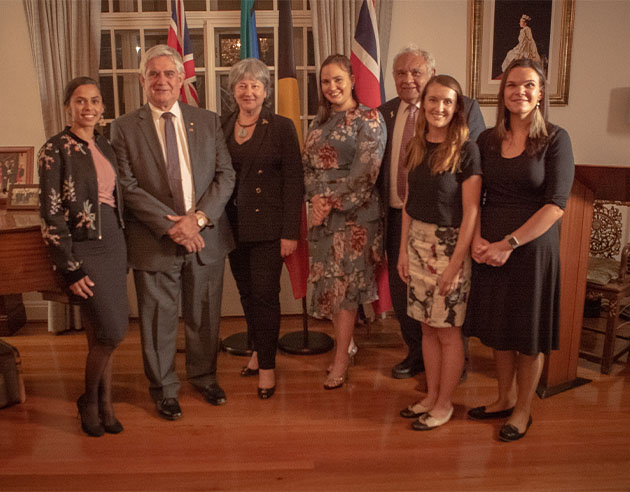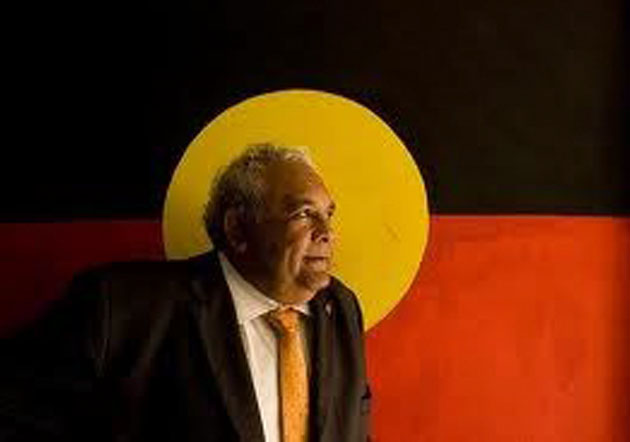Our Stories
Prof. Tom Calma
Prof. Tom Calma is the Co-Chair on the Senior Advisory Group of the ‘Indigenous Voice to Government’ and a Trustee of the Charlie Perkins Scholarship Trust. We talked with Prof. Calma about his involvement with Aurora over the last 16 years and his vision for Aurora’s programs.
Professor Calma, could you describe your involvement with Aurora over the years?
It has been a long association. I think it started around 2004 when I was working at the Australian Human Rights Commission. At the time, I was the Social Justice Commissioner and the Race Discrimination Commissioner. Richard Potok and I built our relationship along two topics Aurora was engaged in at the time – building capacity for Native Title Representative Bodies and the Internship Program. I actually worked with a number of interns during my years as Social Justice Commissioner.
One of my memorable moments in the beginning of Aurora’s programs was that we were able to create more rigour in the Internship Program, by making sure host organisations had a structured program and gave interns a meaningful work experience. I am also an inaugural Trustee on the Charlie Perkins Scholarship Trust that, together with Aurora, provides scholarships to Oxford and Cambridge for Aboriginal and Torres Strait Islander students.

What impact have the Charlie Perkins and Roberta Sykes Scholarships had over the past 10 years?
It has been a massive impact. I recall when we first established the program, no Indigenous student had studied at Oxford or Cambridge for a full-time degree. Part of it was a structural issue as Australia had moved away from honours programs to Bachelor and Masters programs, which meant that a lot of students would not be eligible for universities like Oxford or Cambridge. But it is amazing how, in a short period of time, universities had reorientated, and students had been encouraged to follow an honours program as an alternative. Through this program we have actually been able to help reform how universities consider Aboriginal and Torres Strait Islander students, because they had not previously considered them capable or interested in pursuing an honours program. And when the first students applied and got into Oxford and Cambridge, that was a big lift for us all. And in addition, there was a massive effort by Richard Potok and his team to work through the bureaucracy and create this program that now works so seamlessly and has more and more universities supporting it.
If we just look at it in isolation, we might say, well, there are only a few people that have benefited. But the bigger picture is, we have created an aspiration for a lot of Aboriginal and Torres Strait Islander people to know that they can go on and that they can qualify to go to the top universities in the world. That’s the flow-on effect.
Compared to other education programs supporting Indigenous students, what do you see as the strength of Aurora’s approach?
I have worked with a number of other programs, many of which have a different approach and other ways of creating opportunities for Indigenous – and also non-Indigenous – students in the higher education sector. All of these programs have their place and complement each other.
In my time as an academic and as a diplomat working overseas, I saw a turning point for international students coming into Australia and the richness and cultural diversity they have brought to the Australian higher education system – economically, socially and culturally. In this context, I see the importance for Aurora, and the Charlie Perkins and Robert Sykes scholarships programs of sending Aboriginal and Torres Strait Islander students to go overseas and take up those opportunities. And with the addition of the Aurora Study Tour, there are opportunities created for Indigenous students, opening their eyes to see what is out there and to be able to aspire to higher education internationally. The Aurora programs complement other programs that exist and are able to lead people to aspire.

In your view, what needs to be in place for programs like Aurora to have the widest possible impact and drive systemic change for Aboriginal and Torres Strait Islander students?
I think that is an important point. It’s about promoting the programs and creating more support. Some people might say, why can’t you stay in Australia, why do you want to go overseas? But I believe, education – no matter where you do it – is valuable, and getting international exposure, particularly at the top universities, is a different approach to the way we do it here in Australia. I see a lot of value in that diversity. From my perspective, having that exposure, and getting noted in terms of capacity and credibility as academics, researchers and other roles, is hugely valuable and creates important outcomes for Australian society. But of course, I recognise the challenge before us with COVID and the difficulty for the program for the next while, both from a funding and a public health perspective. We are at a very difficult and important time in our history.
What is your vision for Aurora’s students – international Scholars, high school students or Interns – going forward?
All programs, and particularly the High School Program, are expanding and are providing a significant level of support to get more participants to fulfil their academic potential, either going to university or on to [the] other higher education pathways they choose. I also think the Internship Program is hugely valuable and the Interns get out as much as they give their host organisation. It’s a great opportunity for Indigenous organisations and for Indigenous people. And we have seen a number of Scholars take up really impressive roles, in executive positions, on Boards, on the Charlie Perkins Trust, organising the Sydney Biennale or joining a leading architecture firm in London, just to name a few examples. And I also believe the alumni have a role and an obligation to give back to their communities, which a lot of them are already doing. I think it’s important to have an ongoing conversation as the whole world is changing around us.

